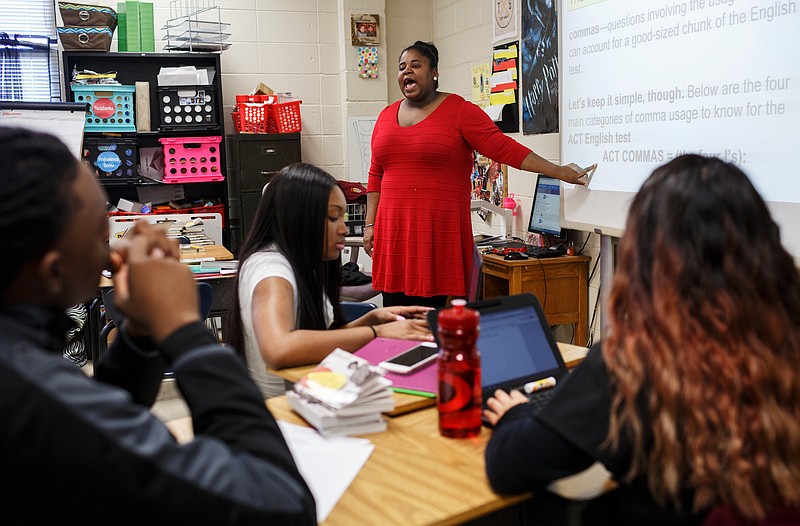Anyone who went to public schools, had a child in public schools or knows a public schools teacher - and that's most of us - is aware of the sacrificial giving by teachers.
Sure, we know they spend lots of time off the clock grading papers, planning lessons and preparing their classrooms, but they also use their own money for supplies, classroom assists, and various and sundry personal items they provide students.
No, they don't have to. No rule is forcing them to do so. But they do so out of a love for students and because they know education is a route to something better for every student.
The need for those items is more keen, it stands to reason, in schools where poverty is greatest. Many of those schools in Hamilton County are in the Opportunity Zone, a group of 12 of the lowest-performing schools in the district where state and local education administrators - and members of the community - are focusing support.
One of the ways in which that support is being realized is a partnership between the school district and the Community Foundation of Greater Chattanooga. Teachers in Opportunity Zones schools have been invited to submit projects they want to fund to a crowd-sourced website, DonorsChoose.org, where donations on the website will be matched through a $10,000 matching grant by the Community Foundation.
This partnership (www.donorschoose.org/hcdeopportunity) will allow residents who feel a burden for public schools and struggling students to make a difference.
It also gives those who desire to make a donation the ability to choose in what school their contribution will go and what it will fund. That type of freedom in giving is liable to move concerned citizens from inertia to action.
Previously, the school district did not permit such crowd-funding projects, but first-year Superintendent Dr. Bryan Johnson is supportive of the project's potential for ramped-up community support for schools.
That subtle type of change is what has allowed Tennessee Education Commissioner Dr. Candice McQueen to modify her thinking about the state's role in changing the culture in the district's five lowest performing schools.
Last September, the Hamilton County Board of Education voted to approve the commissioner's Partnership Zone plan for the schools, but what she will present to the board on Thursday instead will be a plan for a Partnership Network and an attendant five-year memorandum of understanding that board members will vote on later this month.
"We have come to what I consider an evolving way to think about partnership with the district based off a lot that has changed in the past few months," McQueen told Times Free Press editors and reporters recently, "and based off some confidence that we have in some of the things that are being built at the district level."
Generally, she said, "we're in a better place." The Partnership Zone schools, she said "are getting the separate attention we have confidence in" through the Opportunity Zone. Thus, "it's premature to pull out out the schools for a separate zone."
That doesn't mean the state is pulling back, nor should it. Indeed, the proposed plan will detail that a Partnership Network facilitator will be hired by the state, will report to the state, will be the liaison through which the memorandum of understanding is carried out, will help facilitate the acquisition of various funds for the schools and will help create community buy-in.
The executive director of the Opportunity Schools - currently Jill Levine, the district's former chief academic officer - will be responsible for outcomes, McQueen said.
A seven-member advisory board, with four members appointed by the state, will work together with the Partnership Network facilitator, the Opportunity Schools executive director and Johnson to oversee improvement work in the most struggling schools.
After McQueen presents her plan Thursday, the school board likely will vote on it next week. If it is approved, the advisory board will be appointed within 30 days and then the board's goals and steps for improvement outlined within 60 days. The Partnership Network then would go into effect with the 2019-2019 school year.
Will the Opportunity Zone and the Partnership Network be cure-alls for the schools under their umbrellas? Probably not, but they - together with community partnerships like the Donors Choose campaign - offer the best chance for change since the schools were identified as struggling more than a decade ago.
If the schools begin to show - and sustain - annual improvement under the coalitions, Johnson will be on the way to realizing the goal he has for Hamilton County to be the fasting improving district in the state.
